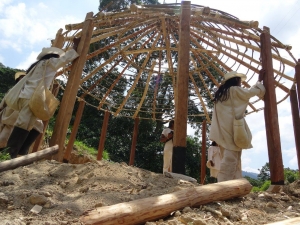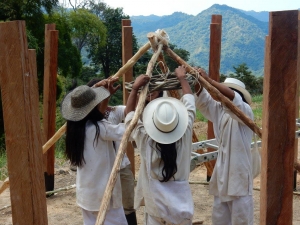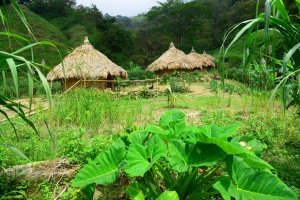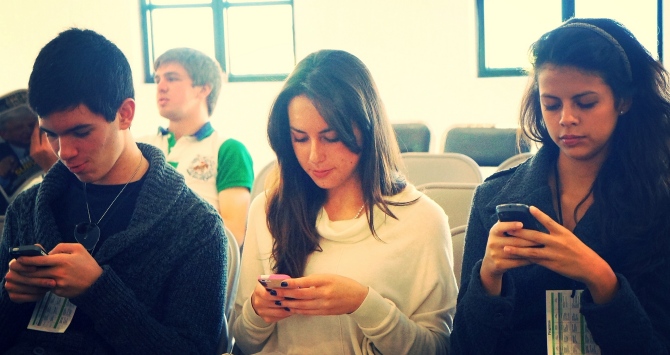MSc Anthropology and Development student, Marco Maragno, tells us why he thinks the notion of “modernity” is outdated.
I recently submitted a paper for my course, Anthropology and Development, critiquing the orthodox notion that “modernity” and “tradition” are analytically separate categories of thought and action. The traits associated by the orthodoxy with “traditional” societies include sustenance agriculture, an informal economy, belief systems rooted in religion and superstition, and power structures dictated by kinship, caste and corruption. On the other hand, “modernity” has been described as characterised by economic and moral rationality, industrialisation, hierarchy determined by meritocracy, and belief in science. This set of assumptions can be seen in sociology, economics and political theory, with authors such as Durkheim, Rostow and Marx all theorising social and economic linear stages of growth which placed tradition at one end and modernisation at the other. This orthodox divide has also been reflected in development discourse, where modernity is seen as allowing underdeveloped economies to shift from their traditional forms of social organisation into flourishing economies.
I have a pet hate for the term “modernity”. Despite the etymology of the word, there is nothing modern about the “modernity” prevailing the economic development discourse described above. In “Seeing Like a State”, James Scott describes the big monocrop agricultural cultivations popularised in the 50s and 60s as a symbol of “modernity”. As Scott himself states, these crops are systematically less efficient than “traditional” substinence farming. We’ve known for ages how harmful these crops are to the environment, but they are still with us. “Modernity’s” ways are seriously outdated. To further illustrate my pet hate for “modernity”, allow me to take you slightly back in time to the Colombian jungle, and relate this term to “indigenous knowledge” and “tradition”, often seen by development practitioners as analytically opposite to “modernity” (as discussed by Scott).
Eight months ago, I packed my dusty clothes into my rugged suitcase and jumped into the pickup truck of a man questionably named “Media Vaca”, or half cow in Spanish. As we bounced down the dirt road, dodging rocks and fallen bamboo trees to the rhythm of pounding raeggeton music, I gave one last glance at Mundo Nuevo, the sustainability project that had been my home for the last year. This was the beginning of my journey, from the heart of the Colombian jungle to the London School of Economics. It was a difficult goodbye. I had spent the last year working in this remote area of Colombia, a mythical land sacred to the indigenous community, known as the Heart of the World for hosting the planet’s major types of climate in a tiny 42km radius, from tropical beaches to snowy mountain peaks. When I gave my farewell, it was to Costeño Colombians, indigenous Wiwa, Belgians, French, Argentinians… beautiful people from different worlds, all working towards the same objective: the dream of environmentally sustainable development.
The first two images show the construction methods used by the indigenous Wiwa people whereby a house is built without the use of a single nail or industrial product. The last two images show finished houses, surrounded by crops designed through both permaculture and Wiwa principles.
Projects like Mundo Nuevo show the notion of “modernity” being analytically separate from “tradition” to be problematic. In this project indigenous knowledge based on centuries cultivating the same land, technology, and efficient Permaculture design are implemented together to achieve self-sustainability. Tellingly, the Wiwa indigenous people’s knowledge often produced the same agricultural approaches to the very recent and highly scientific Permaculture designs. By contrast, Scott argues that modernity’s disregard for indigenous knowledge can be seen as unscientific, because of its uncritical faith in industrialised agriculture and its systematic failure to analyse local expertise.
For me, projects such as this are what “modernity” should be, but outdated notions of unsustainable agriculture and industrialisation have already appropriated the term. Unfortunately, the terms “post-modernity” and yes, even “post post-modernity” are already taken as well. I like to think that I would annoy the likes of Rostow and Marx, by suggesting that “modernity” is a traditional way of being modern. But back to seriousness: a truly “modern” approach is needed to address climate change, pollution and displacement, some of the problems caused by our outdated “modernity”.
Marco Maragno is an Anthropology and Development MSc student at the London School of Economics and Political Science. His current academic interests include agriculture and development and the anthropology of humanitarian emergencies. Prior to the LSE, he was working in a sustainable development project in Colombia.
The views expressed in this post are those of the author and in no way reflect those of the International Development LSE blog or the London School of Economics and Political Science.










A most interesting set of views with excellent images used to support them. What interests me as someone who know traditional tribal groups such as the Pokot in northern Kenya, is the similarity of design of the houses and the similarity of construction methods. I was not able, from the images, to determine whether those carrying out the construction are male or female. The Pokot leave the construction work including the collection of grasses for thatching to the women.
Thank you for your comment Dr Cook. The Wiwa people directly involved in the construction of these houses are all male. Nevertheless, in Wiwa communities I have known women are typically responsible for a large part of manual labour, including jobs such as harvesting and collecting wood.
The similarity with the Pokot houses is interesting. I have read before how indigenous populations in different parts of the world who have had no contact with each other often develop similar agricultural techniques. When men wish to live sustainably, the techniques developed in different parts of the world tend to coincide, as in the case of Wiwa agriculture and Permaculture. The same may be true in this case for the Pokot and Wiwa houses.